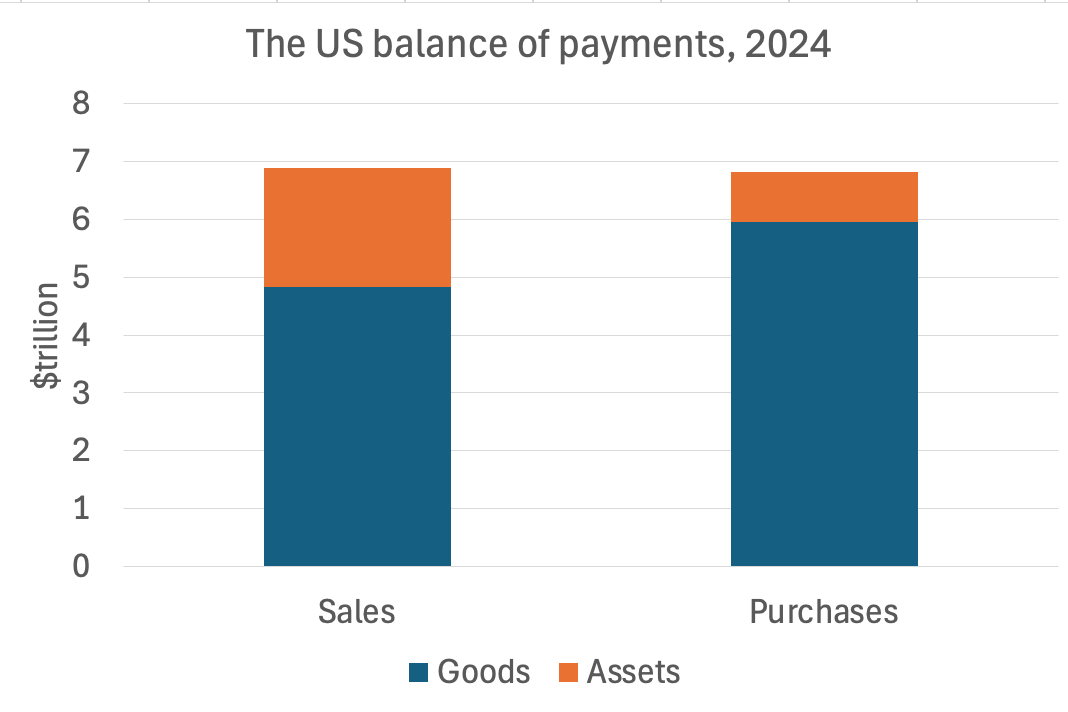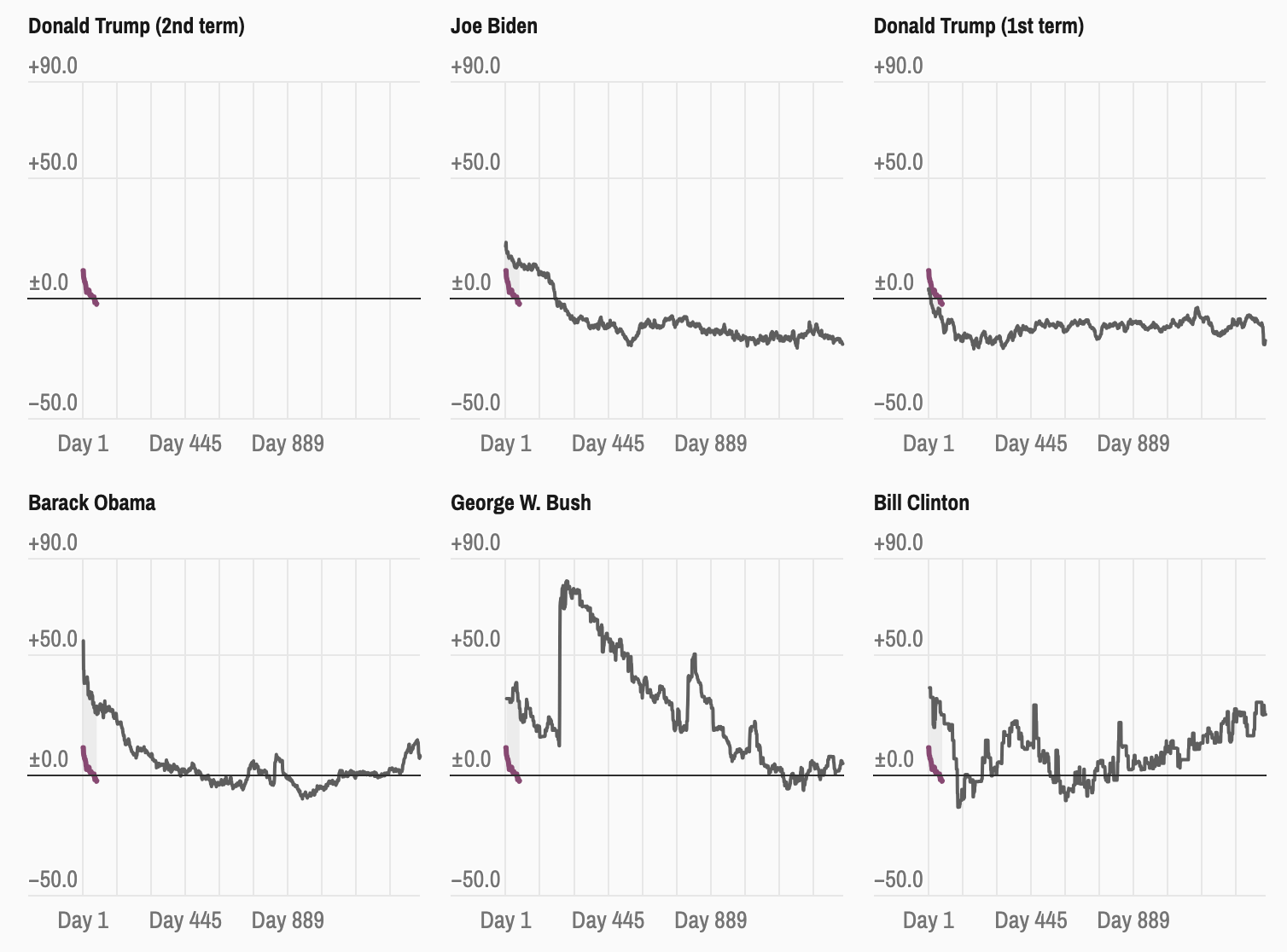
3001. A Balance of Payments Primer, Part I
Paul Krugman discusses the historical context of trade deficits and their implications, referencing David Hume's ideas and current economic debates in the U.S.
your daily dose of economic commentary

Paul Krugman discusses the historical context of trade deficits and their implications, referencing David Hume's ideas and current economic debates in the U.S.
Proposals for a "Mar-a-Lago Accord" aim to depreciate the dollar to improve the trade balance, but face significant challenges and contradictions regarding US interest rates and dollar dominance.

A statement reveals Boeing's contract to produce the next generation of U.S. Air Force fighter jets, with limited details on the aircraft's features.

An argument that the focus on corporate power by progressives fails to resonate with the public, highlighting a disconnect between elite concerns and the economic issues affecting everyday Americans.

Nate Silver analyzes Trump's fluctuating approval ratings and discusses factors influencing his political resilience despite economic challenges.

Scott Cunningham shares a collection of topics including AI, personal growth, culture, and research queries, with insights on economics and political science.

Paul Krugman discusses the intersection of AI and economics, emphasizing the need for economists to better understand technology through his conversation with Erik Brynjolfsson.

Key economic reports for the week include new home sales, GDP estimates, personal income, and manufacturing surveys, highlighting trends in housing and consumer spending.

A court case examines the role of Newsmax's CEO in promoting false claims about election fraud, similar to a previous lawsuit involving Fox News and Dominion Voting Systems.
Concerns arise regarding the potential fracturing of the North American trade bloc due to political tensions and the implications for economic cooperation and supply chains.

A lawsuit is filed by Voice of America staff against the Trump administration, claiming unconstitutional actions to shut down the network.

The post discusses the decline in weekly COVID deaths, updates on hospital reporting requirements, and trends in COVID metrics, particularly wastewater data.

Manuela López Restrepo discusses survey findings on the ideal ages for life milestones among Americans, highlighting that opinions vary based on individual perspectives.

Nick Fountain discusses the implications of changing how GDP is measured, focusing on a proposal to exclude government spending from the calculation.

A family files a wrongful death suit against Boeing, referencing a note from John Barnett expressing a desire for accountability from the company.

Jon Murphy discusses the impact of tariffs on prices and inflation, emphasizing that tariffs cause temporary price increases but do not lead to long-term inflation.

The post discusses the importance of the rule of law for individual liberty and prosperity, emphasizing judicial independence as essential to prevent tyranny.

Bill McBride discusses a decrease in U.S. hotel occupancy rates and the impact of international tourism decline due to political factors.

Kevin Corcoran discusses how the homo economicus model can mislead homebuyers, particularly regarding escalation clauses in real estate offers.

Alex Tabarrok discusses how China's pharmaceutical advancements are benefiting American healthcare and emphasizes the importance of a global market for innovation.